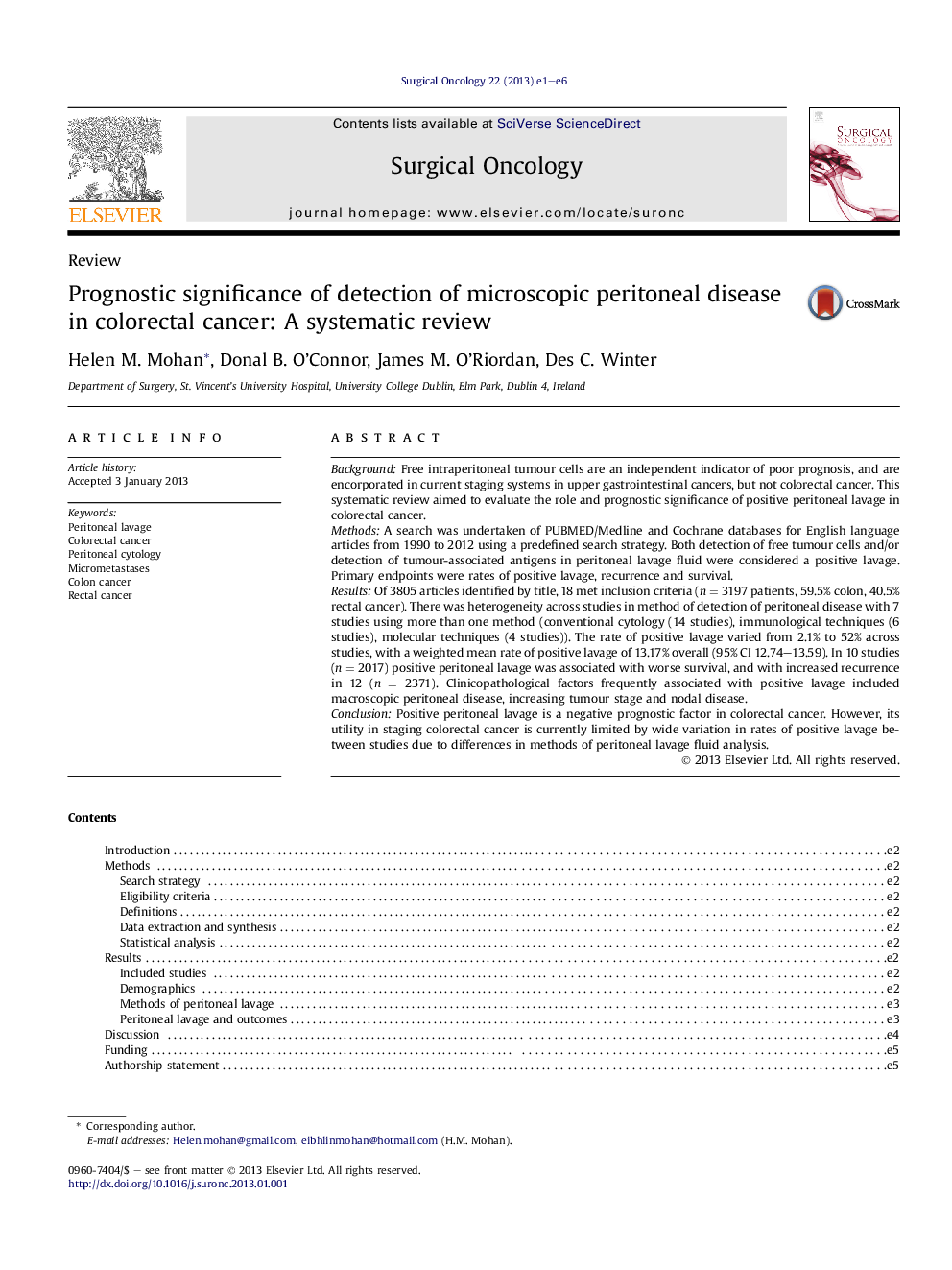| Article ID | Journal | Published Year | Pages | File Type |
|---|---|---|---|---|
| 3997890 | Surgical Oncology | 2013 | 6 Pages |
BackgroundFree intraperitoneal tumour cells are an independent indicator of poor prognosis, and are encorporated in current staging systems in upper gastrointestinal cancers, but not colorectal cancer. This systematic review aimed to evaluate the role and prognostic significance of positive peritoneal lavage in colorectal cancer.MethodsA search was undertaken of PUBMED/Medline and Cochrane databases for English language articles from 1990 to 2012 using a predefined search strategy. Both detection of free tumour cells and/or detection of tumour-associated antigens in peritoneal lavage fluid were considered a positive lavage. Primary endpoints were rates of positive lavage, recurrence and survival.ResultsOf 3805 articles identified by title, 18 met inclusion criteria (n = 3197 patients, 59.5% colon, 40.5% rectal cancer). There was heterogeneity across studies in method of detection of peritoneal disease with 7 studies using more than one method (conventional cytology (14 studies), immunological techniques (6 studies), molecular techniques (4 studies)). The rate of positive lavage varied from 2.1% to 52% across studies, with a weighted mean rate of positive lavage of 13.17% overall (95% CI 12.74–13.59). In 10 studies (n = 2017) positive peritoneal lavage was associated with worse survival, and with increased recurrence in 12 (n = 2371). Clinicopathological factors frequently associated with positive lavage included macroscopic peritoneal disease, increasing tumour stage and nodal disease.ConclusionPositive peritoneal lavage is a negative prognostic factor in colorectal cancer. However, its utility in staging colorectal cancer is currently limited by wide variation in rates of positive lavage between studies due to differences in methods of peritoneal lavage fluid analysis.
